Conference on ‘Cultural Transfer 1900: Rilke and Russia’ at the Russian State University for the Humanities (RGGU)
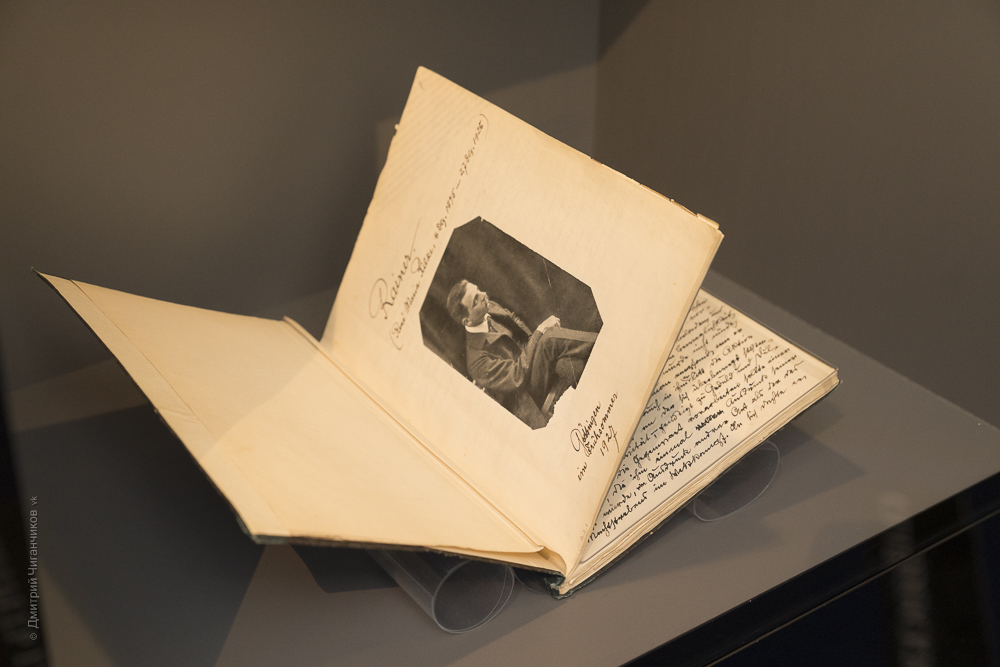
Exhibit from the ‘Rilke and Russia’ exhibition
© Dmitrij Tschigantschikov (Literaturmuseum)
(15.02.18) At the beginning of February, the Russian State University for the Humanities (RGGU) in Moscow played host to an international conference on the topic of ‘Cultural Transfer 1900: Rilke and Russia’. The conference was organised by the Russian State Literary Museum in Moscow, the DFG International Research Training Group at RGGU Moscow (IRTG 1956) and the Institute of Russian-German Literary and Cultural Relations (IRDLK), also based at RGGU Moscow, in partnership with the German Embassy in Moscow, the Swiss Embassy in Moscow and the Tsvetaeva Centre for Russian Culture at the University of Freiburg (Zwetajewa-Zentrum).
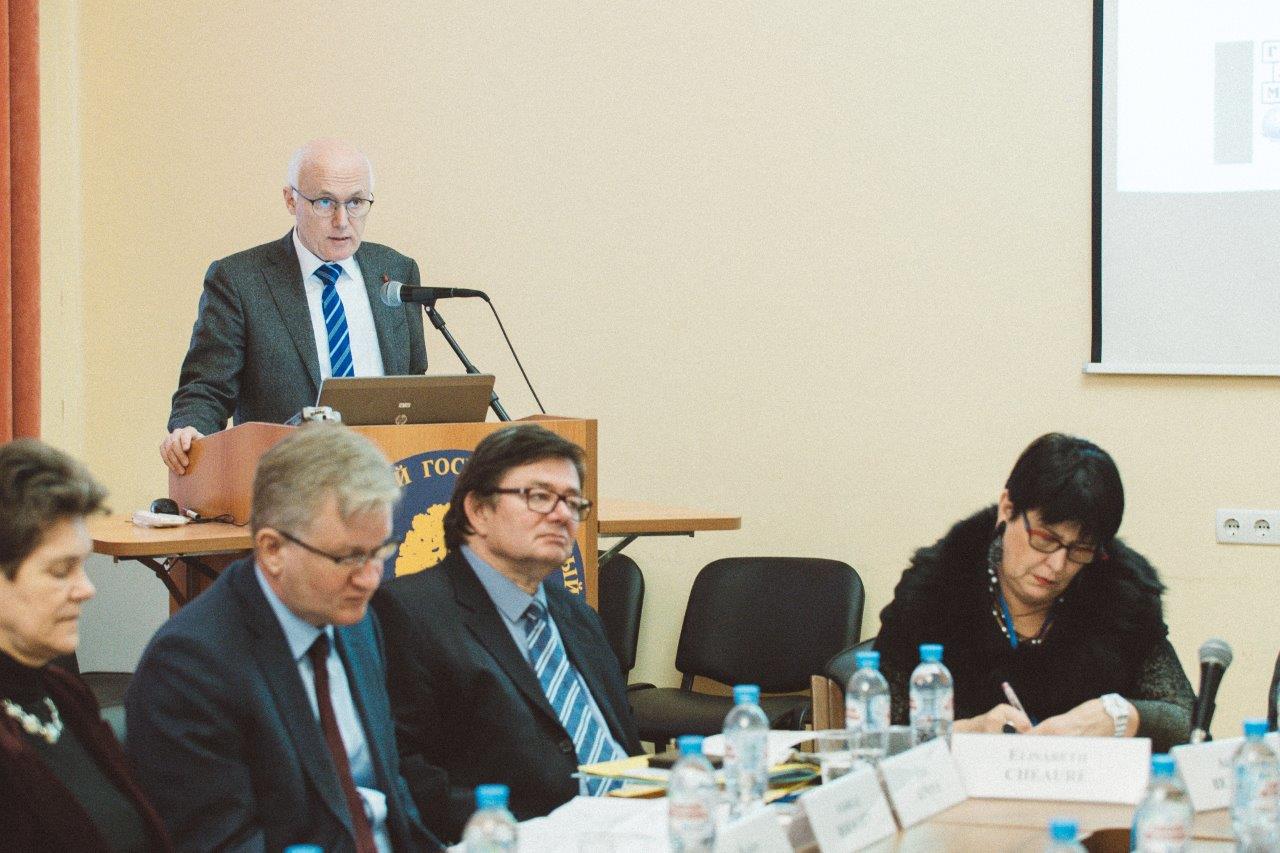
Dr. Thomas Wiemer, programme director for Humanities and Social Sciences at DFG Bonn, spoke at the opening of the conference
© Timur Goldman (Literaturmuseum)
After the event was formally opened by the Acting Rector of RGGU, Prof. Alexander Bezborodov, the participants were welcomed by Jan Kantorczyk (German Embassy in Moscow), Prof. Dmitrii Bak (State Literary Museum, Moscow), Dr. Thomas Wiemer (DFG Bonn), Dr. Andreas Hoeschen (DAAD Moscow), Dr. Ulrich von Bülow (German Literature Archive Marbach) and Prof. Dr. Elisabeth Cheauré (spokesperson for IRTG 1956). Over the course of the multi-day event, prominent scholars from Germany, Russia and Switzerland discussed aspects of Rilke’s lyrical and literary oeuvre and his life story, which included two extended visits to Russia and what is now Ukraine – trips that made a lasting impact on him. During this period, Rilke became acquainted with Russian culture as well as writers and poets including Leo Tolstoy, Leonid Pasternak and Marina Tsvetaeva. Both as a man and as an author, Rilke ranks among the most important individuals in the story of German-Russian cultural interaction and the mutual influence of the two cultural spheres.
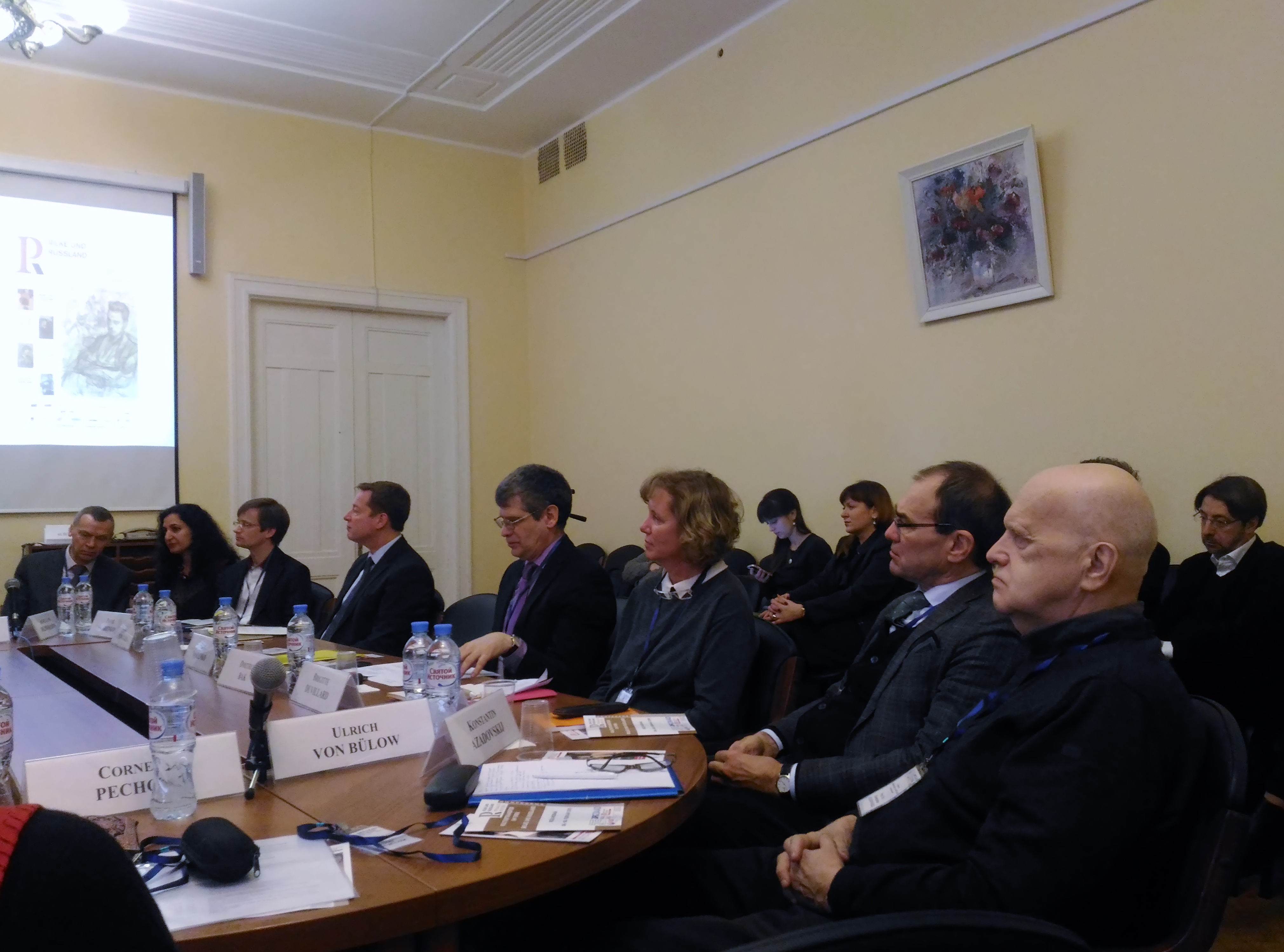
Opening of the conference ‘Cultural Transfer 1900: Rilke and Russia’ at RGGU
© DFG Moskau
In addition to the spokesperson for the German-Russian Research Training Group, Elisabeth Cheauré, other participants in the group, such as Dirk Kemper and Aleksei Zherebin, also attended the conference. The Research Training Group, which was formally inaugurated in Moscow in 2015 by a prominent delegation, is based at RGGU and the University of Freiburg. Within the group, entitled “Cultural Transfer and ‘Cultural Identity’ – German-Russian Contacts in the European Context”, three generations of researchers have investigated the long tradition of national, bilateral and international research on German-Russian cultural contacts and the European dimension of these contacts.
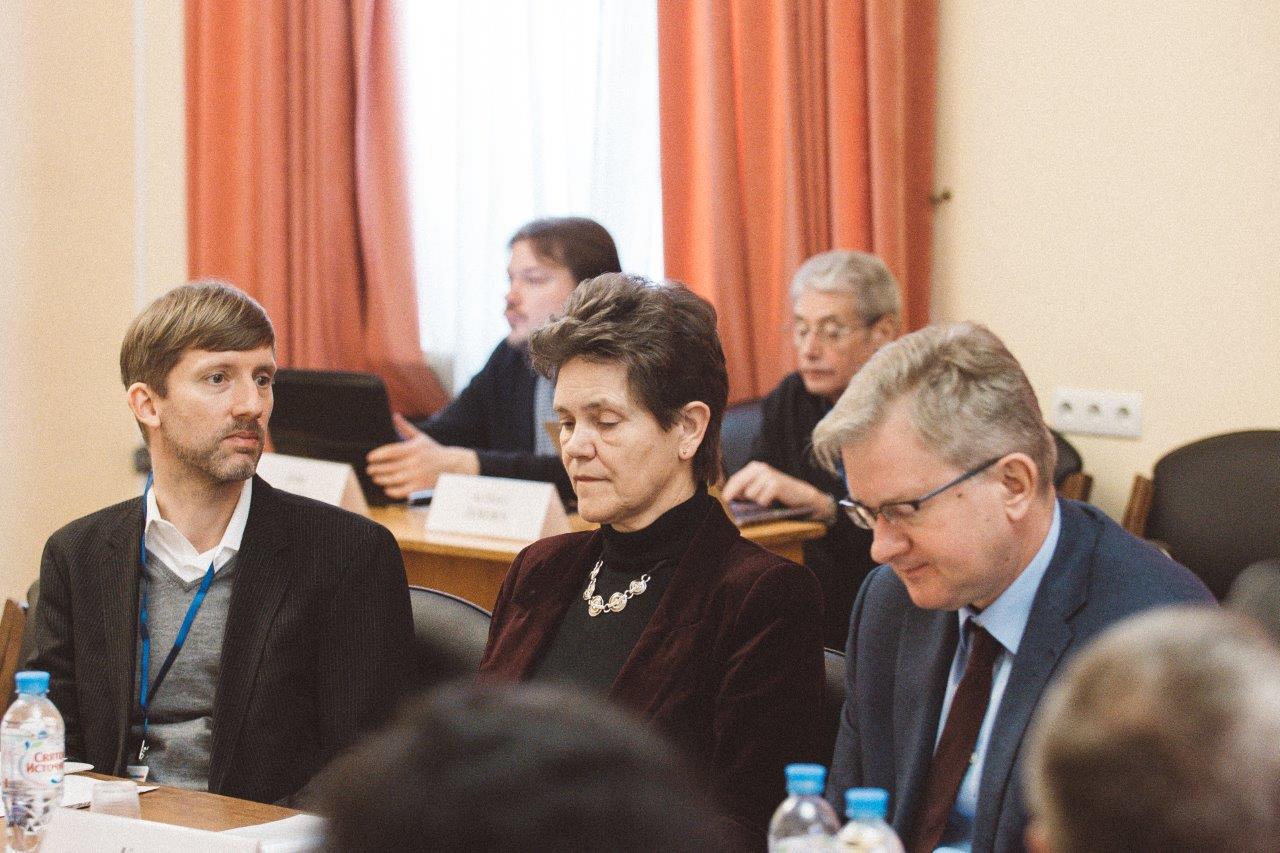
Participants of the conference ‘Cultural Transfer 1900: Rilke and Russia’
© Timur Goldman (Literaturmuseum)
In his speech, Dr. Thomas Wiemer, DFG programme director for Humanities and Social Sciences, underlined the importance of IRTG 1956 – particularly in the context of German-Russian cooperation and the scholarly analysis of literature as a medium of cultural exchange: “Literature is not a luxury but a product of a cultural technique that has been widespread for thousands of years. […] Literature is one of the most basic activities of a society; it evolves in constant exchange with other social phenomena and institutions, but also in interaction with other arts and media.” Literature, Wiemer explained, has the capacity, “from poetry and theatre to the novel and the film, to create afresh, to make us aware of the overlooked and the inconspicuous, to focus attention on the forgotten, the suppressed, the taboo, to alter perspectives and to change perceptions.”
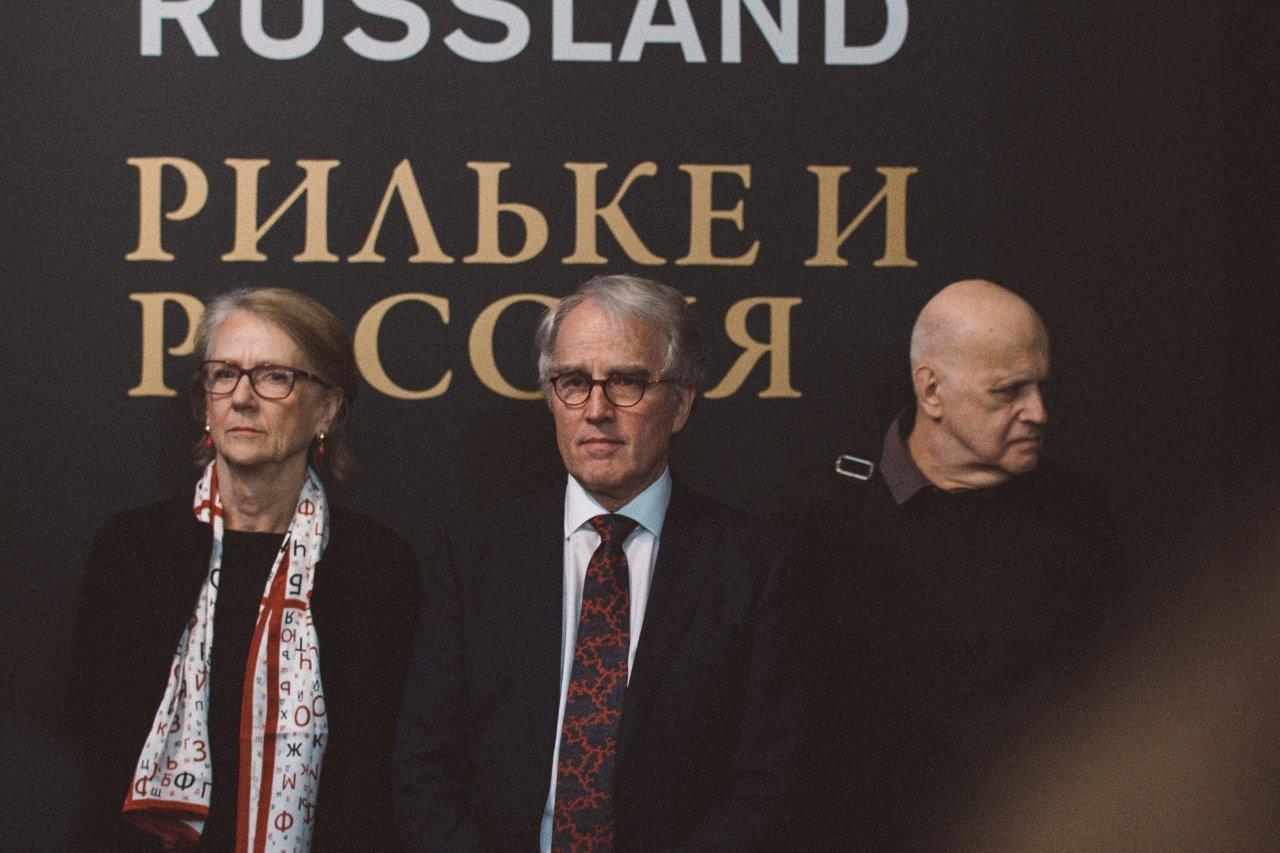
Opening of the ‘Rilke and Russia’ exhibition at the State Literary Museum Ostrouchov House in Moscow. From left: Huberta von Fritsch (wife of the ambassador), Rüdiger von Fritsch (ambassador at the German Embassy in Moscow), Dr. Konstantin Azadovskii (literary scholar)
© Timur Goldman (Literaturmuseum)
The specialist conference accompanied an international exhibition entitled ‘Rilke and Russia’, produced in partnership between the Swiss Literature Archive (Zurich), the German Literature Archive (Marbach) and the Russian State Literary Museum (Moscow). On the evening before the opening of the exhibition, the German and Swiss embassies hosted a reception at the German ambassador’s residence which was attended by more than 150 people. As part of the exhibition, three original portraits of Rainer Maria Rilke by the famous Russian painter Leonid Pasternak are being shown for the first time in Moscow, alongside numerous original documents, letters and other items on loan from private collections and various archives in Russia, Switzerland and Germany. ‘Rilke and Russia’ has already been shown in Germany and Switzerland, and the exhibition will be open to the public in Moscow until 31 March 2018 at the Vladimir Dal State Literary Museum, Ostrouchov House.
Further Information
Video material (provided by the Vladimir Dal State Literary Museum): Conference on ‘Rilke and Russia’: